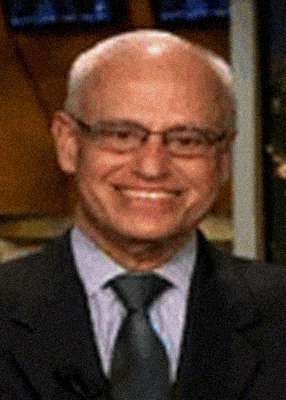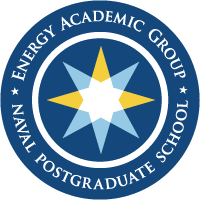November 4, 2016 - Energy Academic Group
 The Geopolitics of Oil: Western Hemisphere Scenarios
The Geopolitics of Oil: Western Hemisphere Scenarios
November 4, 2016
ME Lecture Hall
1300
Dr. Jorge R. Piñón
Director, of Latin American and Caribbean Energy Program, Jackson School of Geosciences, University of Texas, Austin
Abstract
Innovative technologies have unlocked new conventional and unconventional hydrocarbon resources along with renewable sources of energy throughout the Western Hemisphere. The Latin America and Caribbean region is on the threshold of revitalizing its economies and has an opportunity to build energy and environmental policies and programs that will result in sustainable growth long into the future.
The area includes countries that have already achieved high living standards, efficient governments and educational institutions, and a superior quality of life for their citizens. It also includes countries that are struggling to achieve the same level of development, many of which are blessed with newly discovered energy resources that can, if properly managed, lead to improved education, health and welfare of their populations.
According to the Energy Information Administration (EIA), from February to July 2016, 24.5 percent of U.S. petroleum imports came from Latin America (including Mexico and Venezuela) and the Caribbean, while only 17.6 percent of imports were sourced from the Persian Gulf. If Canadian supplies are added to these figures then 61.0 percent of the United States’ petroleum imports come from our regional neighbors in the Western Hemisphere. Mexico, Venezuela and Colombia are among the top five suppliers of crude oil and petroleum products to the United States.
The Western Hemisphere represents approximately one third of the world’s proven conventional and unconventional hydrocarbon reserves, and liquids production; Venezuela alone has over 300 billion barrels of proven conventional and unconventional reserves.
Most recently, a study from the EIA also showed that Argentina and Mexico are the third and fourth largest holders, respectively, of technically recoverable shale gas reserves in the world. Clearly, Latin America will continue to represent an important future source of crude oil supply to the United States.
The United States has also recently become the principal source of imported transportation fuels to Latin America, predominantly to Mexico, Colombia, Ecuador and Chile among others. In 2011 the U.S. became a net exporter of petroleum products; this was the first since 1949 that the U.S. exported more oil and oil products that it imported. The reason was due in part because of reduced domestic fuel demand and in part because the industry produced at or near record amounts of gasoline and diesel from new processing Gulf of Mexico conversion capacity.
Today Latin America’s energy potential is being undermined by the serious geopolitical uncertainties, along with economic, environmental, social and regulatory issues that could impact the monetization of the region’s rich hydrocarbon resources.
Mature countries such as Argentina, Colombia, Ecuador, Brazil, Peru, Bolivia, and Mexico, and new oil players such as Uruguay and the Guianas Basin Region will face huge technological challenges in both upstream and downstream resource development and environmental stewardship; along with governance and social responsibility issues related to the management of hydrocarbon resource development.
Will the region be able to create and execute energy policies and regulations that would allow the sustainable development of its hydrocarbon resources in upstream oil and natural gas, as well as downstream and mid-stream oil and natural gas (LNG) value chain? How will the development of bio-fuels, renewables, and the electric power sectors impact the sustainable development?
Biography
Jorge R. Piñón is Interim Director of The University of Texas at Austin, Jackson School of Geosciences, Center for International Energy and Environmental Policy and Director of its Latin America and Caribbean Energy Program.
Mr. Piñon began his long career in the energy sector when he joined Shell Oil Company’s supply and transportation organization in 1975. He was president and CEO of Transworld Oil USA prior to joining Amoco Corporation in 1991 as president of Amoco Corporate Development Company Latin America. In this position Mr. Piñon represented the business development and joint venture efforts in Latin America between Amoco Corporation and state oil companies.
In 1994 he was transferred to the downstream oil sector to serve as president of Amoco Oil de México and president of Amoco Oil Latin America, based in Mexico City. He was a member of the board of INROADS de Mexico, an organization developing underserved youth in business and industry and preparing them for corporate and community leadership. In 1997, while vice-president and member of the board of directors of the American Chamber of Commerce of Mexico -AMCHAM-, Mr. Piñon received the “Yiacatecutli” award for distinguished service in the promotion of U.S.-Mexico business relations.
After the 1999 merger between Amoco and BP, Mr. Piñon was transferred to Madrid, Spain, to manage BP Europe’s western Mediterranean petroleum supply and logistics operations. He retired from BP in 2003.
With international experience in business development, joint ventures and relationship management in emerging and transitional markets, and a network of senior energy contacts in Latin America; he is recognized as an independent analyst of regional energy issues, as well as the geopolitics of oil and natural gas in Latin America. He has conducted research and country risk assessments as a Visiting Energy Fellow at the University of Miami’s Center for Hemispheric Policy (2005-2010) and at Florida International University’s Latin American and Caribbean Center (2010-2011) prior to joining the University of Texas at Austin in 2012.
He is also recognized as an expert on Cuba’s energy sector, as well as on the island’s future economic transitional challenges and opportunities. He is an advisor and a member of the Cuba task force at The Brookings Institution and co-author of “Cuba’s Energy Future: Strategic Approaches to Cooperation”, Brookings Institution Press 2010.
Mr. Piñon has testified before the U.S. Senate, the U.S. House of Representatives and the U.S International Trade Commission on issues of energy policy related to Cuba and Latin America; he holds a degree in Economics and a certificate in Latin American Studies from the University of Florida, Gainesville.
POC
Dr. Daniel A. Nussbaum
Naval Postgraduate School
Principal, Energy Academic Group
Monterey CA 93943
Phone: 831-656-2387
Mobile: 831-324-3228
Email: dnussbaum@nps.edu

